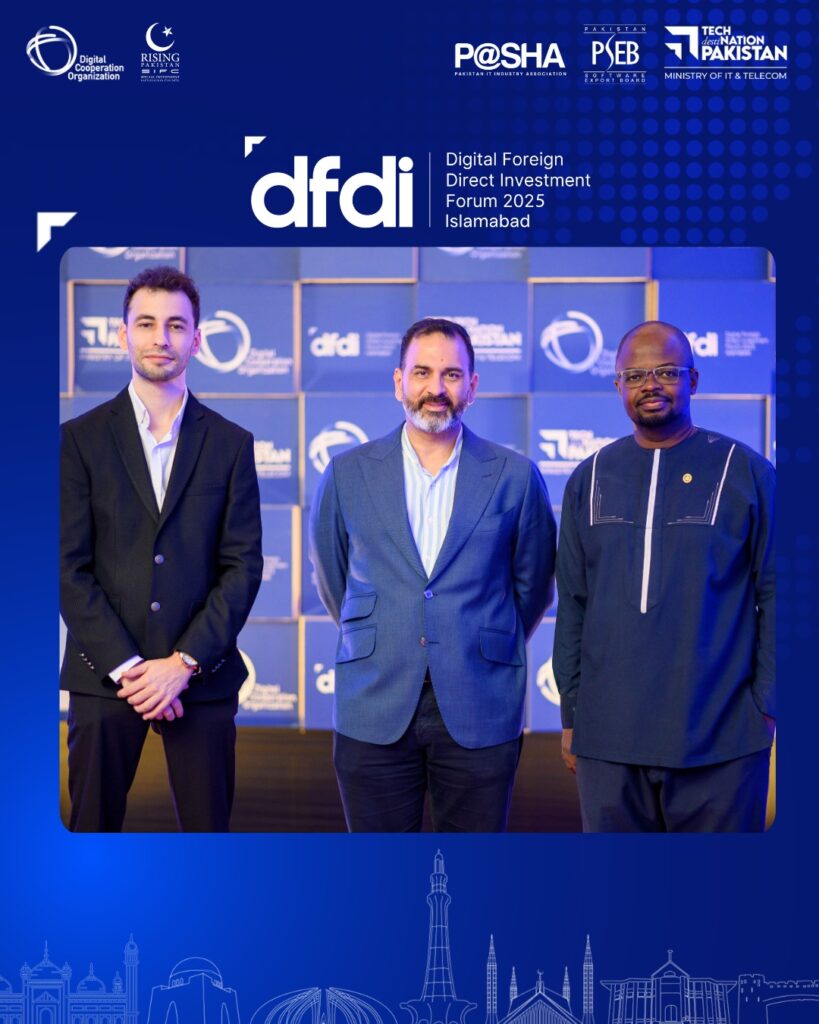Table of Contents
DFDI Sustainability Initiative: Aligning Investment With Environmental Progress
DFDI sustainability initiative is a game-changing approach to building a greener and more sustainable world. DFDI, or Direct Foreign Direct Investment, refers to the infusion of capital from foreign entities into a host country’s development. When aligned with sustainability goals, these investments become powerful tools to promote environmental protection, economic resilience, and social well-being.
The DFDI sustainability initiative empowers countries to develop eco-friendly infrastructure, adopt renewable energy, create green jobs, and achieve long-term climate targets. By combining global capital with local vision, this initiative brings measurable change where it’s needed most.
What Is the DFDI Sustainability Initiative?
The DFDI sustainability initiative refers to a coordinated global effort to channel foreign direct investment into projects that contribute to environmental, social, and governance (ESG) outcomes. These projects often align with the United Nations Sustainable Development Goals (SDGs) and include:
- Renewable energy
- Sustainable agriculture
- Water and sanitation
- Clean transportation
- Waste reduction
- Green building
This initiative bridges the investment gap for sustainability-focused projects in emerging and developing countries, providing the financing and technology they need to advance sustainably.

Why the DFDI Sustainability Initiative Is Important
1. Supports Global Climate Goals
The DFDI sustainability initiative helps countries meet their carbon reduction targets under the Paris Agreement by financing climate-smart projects.
2. Accelerates Sustainable Development
Foreign capital accelerates infrastructure development, promotes circular economy practices, and ensures responsible consumption and production.
3. Reduces Reliance on Fossil Fuels
With investments in solar, wind, and hydro power, DFDI reduces fossil fuel dependence, minimizing pollution and ecological damage.
4. Encourages Innovation and Technology Transfer
The initiative enables emerging markets to access advanced green technologies and know-how through international partnerships.
5. Enhances Economic Stability
Sustainability projects funded by DFDI generate employment, boost exports, and promote inclusive economic growth.
Key Sectors Benefiting from the DFDI Sustainability Initiative
The DFDI sustainability initiative plays a pivotal role in accelerating progress across multiple sectors that are essential for sustainable development. These sectors not only address environmental concerns but also contribute to inclusive economic growth and societal well-being. Foreign direct investment channeled through this initiative enhances innovation, drives infrastructure, and closes the funding gap in green projects.
Below is a detailed look at the key sectors significantly benefiting from the DFDI sustainability initiative:
1. Renewable Energy
Renewable energy is the backbone of the DFDI sustainability initiative, attracting the largest share of foreign investment globally. This sector includes:
- Solar Energy: Investments support the installation of solar farms, rooftop solar systems, and solar mini-grids in rural areas.
- Wind Power: Onshore and offshore wind projects receive significant foreign capital, especially in countries with favorable wind corridors.
- Hydropower: Foreign investment is modernizing hydroelectric facilities and supporting small-scale hydro systems in developing regions.
- Bioenergy: DFDI is enabling the use of organic waste and biomass for clean energy production.
These investments help countries reduce dependence on fossil fuels, stabilize energy costs, and meet global climate targets.
2. Sustainable Agriculture
Agriculture is not only essential for food security but also a major emitter of greenhouse gases. The DFDI sustainability initiative supports:
- Organic farming and reduced pesticide use
- Water-efficient irrigation systems
- Agroforestry and crop diversification
- Climate-resilient seeds and practices
Foreign investment in sustainable agriculture improves productivity, enhances soil health, and minimizes environmental impact. It also empowers rural communities with jobs and income opportunities.
3. Waste Management and Recycling
Urbanization and consumption trends are increasing waste volumes globally. Through the DFDI sustainability initiative, countries are building:
- Recycling plants
- Composting facilities
- Waste-to-energy plants
- Landfill rehabilitation projects
DFDI supports the development of circular economies by converting waste into resources. This sector reduces pollution, saves energy, and conserves raw materials while creating green jobs.
4. Water and Sanitation
Access to clean water and sanitation is a basic human right and a critical development goal. DFDI in this sector supports:
- Water purification and desalination plants
- Sustainable irrigation systems
- Sewage treatment and stormwater management
- Smart water infrastructure
These investments help prevent waterborne diseases, increase agricultural yields, and ensure long-term water security in drought-prone regions.
5. Sustainable Transportation
The transport sector accounts for nearly one-quarter of global CO₂ emissions. The DFDI sustainability initiative is funding innovations such as:
- Electric vehicle (EV) infrastructure
- Mass transit systems (e.g., metro, BRT)
- Railway electrification
- Non-motorized transport lanes (bike paths, pedestrian routes)
By reducing emissions and congestion, sustainable transportation systems enhance urban livability, reduce dependency on fossil fuels, and promote inclusive mobility.
6. Green Buildings and Smart Infrastructure
The construction industry has a massive carbon footprint, but it’s evolving through sustainable practices. DFDI supports:
- Energy-efficient building materials
- LEED-certified structures
- Smart city infrastructure (IoT-enabled grids, lighting, etc.)
- Retrofitting older buildings to improve energy use
Green buildings lower operational costs, reduce emissions, and improve public health through better air quality and resource efficiency.
7. Environmental Restoration and Reforestation
Nature-based solutions are central to climate resilience. The DFDI sustainability initiative is instrumental in:
- Afforestation and reforestation programs
- Ecosystem restoration (wetlands, mangroves)
- Biodiversity conservation parks
- Land degradation neutrality projects
These efforts sequester carbon, preserve ecosystems, and provide sustainable livelihoods through eco-tourism and community forestry.
8. Green Manufacturing and Sustainable Industry
Industrial processes are being reimagined for sustainability. DFDI is increasingly directed toward:
- Low-carbon manufacturing
- Circular supply chains
- Clean tech adoption (solar thermal, electric kilns, etc.)
- Pollution control systems
These innovations not only cut emissions and waste but also enhance competitiveness for manufacturers in global ESG-conscious markets.
9. Education and Research in Sustainability
Building human capital is vital for the success of the DFDI sustainability . Investments in this sector fund:
- Green vocational training programs
- Research in renewable energy and climate adaptation
- University collaborations and innovation hubs
- Digital sustainability platforms and AI-powered tools
This sector ensures the development of a skilled workforce capable of driving and maintaining green transformations at the local level.
10. Climate Finance and Green Technology Platforms
As the initiative matures, more DFDI is flowing into:
- Green fintech platforms for micro-investments
- Carbon credit exchanges and carbon markets
- Blockchain-based sustainability traceability systems
- Clean tech incubators and accelerators
These digital and financial ecosystems help scale sustainable projects by increasing transparency, mobilizing small investors, and encouraging data-driven policy making.
Global Impact of the DFDI Sustainability
The DFDI sustainability has already shown significant impact worldwide:
- Africa: Solar mini-grids built with DFDI bring electricity to off-grid villages.
- Asia: Clean-tech startups in India and Vietnam receive funding to scale innovations.
- Latin America: Sustainable forestry and water conservation projects thrive with foreign backing.
- Europe: Green hydrogen and carbon capture projects receive DFDI to meet EU Green Deal targets.
How Governments Support the DFDI Sustainability
Countries actively encourage foreign investment in sustainable projects through:
- Incentives: Tax breaks, grants, and subsidies for green sectors.
- Policy Frameworks: Green finance policies and ESG-compliant regulations.
- Public-Private Partnerships: Governments co-invest with private players to de-risk projects.
- Transparency: Streamlined processes and clear investment guidelines.
By creating favorable conditions, governments make the DFDI sustainability initiative an attractive and secure opportunity for investors.
DFDI Sustainability Initiative and the SDGs
The initiative aligns with multiple UN Sustainable Development Goals, including:
- SDG 7: Affordable and Clean Energy
- SDG 9: Industry, Innovation, and Infrastructure
- SDG 11: Sustainable Cities and Communities
- SDG 13: Climate Action
- SDG 17: Partnerships for the Goals
Investors and host countries alike can contribute meaningfully to global sustainability through this initiative.
Challenges Facing the DFDI Sustainability Initiative
While promising, the DFDI sustainability initiative faces challenges such as:
- Regulatory Uncertainty: Complex policies may delay foreign investment.
- Political Instability: Unpredictable governance may deter investors.
- Lack of Infrastructure: Basic logistics like roads and grids may be underdeveloped in some regions.
- Currency Risks: Fluctuations in exchange rates can affect project viability.
Solutions include risk mitigation tools, multilateral support, and clear investment frameworks.
Benefits for Investors in the DFDI Sustainability Initiative
Investing in the DFDI sustainability initiative offers:
- Stable Returns: Long-term, government-supported projects ensure reliable income.
- Reputational Gains: ESG-compliant investments enhance brand image.
- Market Expansion: Entering high-growth sustainable markets early.
- Diversification: Reduce exposure to fossil fuel sectors.
- Impact Investing: Align financial goals with social and environmental values.
Top Countries Attracting DFDI for Sustainability
- India – Aggressive green targets, tax incentives, and policy support.
- Vietnam – Rapid adoption of clean energy and eco-manufacturing.
- Kenya – Thriving off-grid solar and sustainable agriculture.
- Brazil – Large potential in bioenergy and reforestation.
- Morocco – Hosting mega solar and wind projects through DFDI.
These countries offer stable frameworks and exciting growth opportunities.
How to Participate in the DFDI Sustainability Initiative
You can join the initiative through various avenues:
- Institutional Investment: Allocate capital via funds targeting ESG projects.
- Corporate Expansion: Set up operations in green sectors overseas.
- PPP Collaboration: Work with governments and NGOs on co-funded projects.
- Startup Funding: Support innovation in sustainable tech.
- Advisory and Research: Contribute to strategy, policy, and awareness-building.
Case Studies: Success Stories of the DFDI Sustainability Initiative
1. Solar Power in Sub-Saharan Africa
DFDI-funded solar mini-grids have electrified over 100 villages, improving health, education, and productivity.
2. Smart Cities in Southeast Asia
Singapore and Malaysia are creating sustainable urban spaces using DFDI in smart grids, transport, and buildings.
3. Reforestation in Brazil
Private foreign capital has enabled the planting of over 1 million trees and restoration of degraded ecosystems.
Future of the DFDI Sustainability Initiative
The future looks bright, with trends like:
- Green Bonds: Financing targeted climate solutions.
- Blended Finance: Public and private funds combining for impact.
- Digital Sustainability Platforms: Use of AI and blockchain for transparency.
- Carbon Trading Markets: Global DFDI in emission reduction projects.
These innovations will drive the DFDI sustainability initiative forward, ensuring greater scale and inclusivity.

Conclusion: Why the DFDI Sustainability Initiative Matters
The DFDI sustainability initiative is not just about investment—it’s about impact. By channeling global capital into sustainable projects, we can fight climate change, reduce poverty, protect natural ecosystems, and drive inclusive economic growth. It’s a win-win for investors, governments, communities, and the planet.
Now is the time to align investment with values. Whether you’re a policymaker or private investor, embracing the DFDI sustainability initiative is your path to building a resilient, equitable, and environmentally sound future.
FAQs about the DFDI Sustainability Initiative
1. What is the DFDI sustainability initiative?
It is a global movement to direct foreign investments into projects that promote environmental and social sustainability.
2. How does DFDI differ from regular FDI?
DFDI specifically targets sustainable development goals, while regular FDI may fund any commercial sector.
3. Which sectors are involved in the DFDI sustainability initiative?
Key sectors include renewable energy, clean transport, waste management, water, and sustainable agriculture.
4. Is DFDI safe for investors?
Yes, especially when supported by government incentives, risk mitigation strategies, and long-term contracts.
5. How can I participate in the DFDI sustainability initiative?
You can invest directly, partner with governments or NGOs, or fund startups and green funds.
Follow us on Facebook for Quick Response & Quires – Digital Foreign Direct Investment (DFDI)
